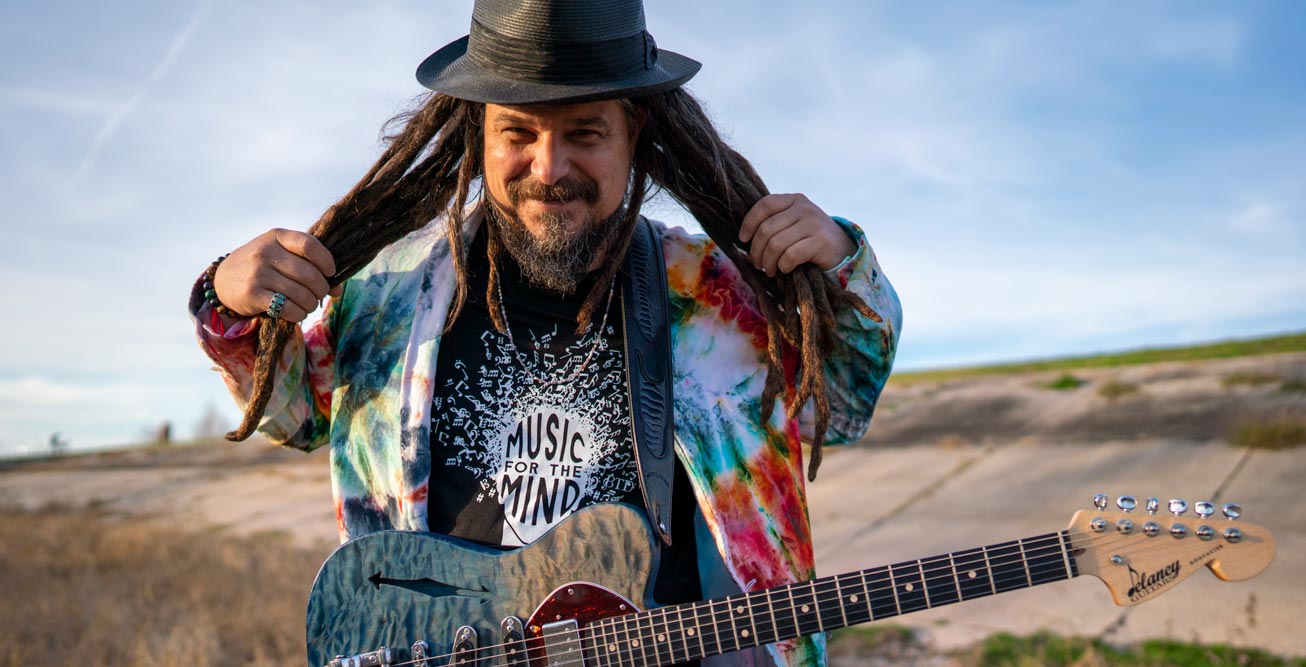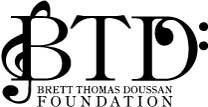Mike Doussan

Mike Doussan, New Orleans-based songwriter, guitarist, and co-founder of the BTD Foundation, is a true embodiment of the phrase ‘Music for the Mind.’ Picking up the guitar at only 8 years old, Mike broke into the New Orleans music scene in 2004, first as sideman in such acts as Mike Hood and the Frenchmen St. Delegation, and Eric Lindell, and then as a bandleader of his own accord. With his first album recorded just before Hurricane Katrina made landfall in Mike’s hometown, Mike is no stranger to express authentic human emotion in a way that allows others to find emotional reprieve – with music. After losing his brother, Brett, to suicide in 2014, Mike, his family, and their friends wasted little time in building an entity for mental health advocacy through music and outreach, encouraging all to take comfort in the benefits of using music to manage and improve mental health issues. With his most recent album, “Yesterday’s Troubles” (2019) offering even more lyric and melodic expression of life’s ups, downs, and all the beauty along the way, we are thrilled to share this interview with Mike as part of the Music for the Mind campaign. Read on!
How would you describe your music in three words?
Love, struggle, hope.
At least, that’s what came to mind first. I’m sure I could have different answers to this depending on when you asked me, but those words pretty much sum up my music at this point.
What is the earliest music memory that made you think, “I want to do that!”?
Man, that’s a tough one, because my memory is so bad. I remember loving listening to vinyl through my dad’s headphones on our home stereo. I was probably 5 years old when I started doing that, so I didn’t really have a concept of what I wanted to do with my life, but those old records definitely had an impact for sure.
What really intrigued me was MTV. I loved everything about rock and roll music videos. The look, the attitude, the loud music… I actually smashed my first guitar against the brick carport at my family home when I was 8 years old after watching Pete Townsend smash a guitar on stage in a music video. Maybe MTV subconsciously made me want to play music for a living, but it wasn’t until much later that I accepted that as my path.
You started making your professional career in music in your early 20’s, and sustained that with notoriety as a nuanced guitarist, dynamic songwriter and performer, and all-around “go-to” session/side-man in a variety of New Orleans-based ensembles. With such an esteemed career both behind, and ahead, for you, how has your music-making process grown and changed over time?
I’ve become more comfortable with myself as time has elapsed. I was always so self-conscious early on. I still am to a certain degree, but I think I’ve learned how to process more efficiently as I’ve grown. I used to be very concerned with how my songs would sound or what genre they would fit in. Sometimes I would change a song that came out country to fit into blues or funk, because I saw myself as a blues/funk artist, and not as a songwriter. I am very comfortable now allowing songs to be what they are and celebrate their identity regardless of what box someone else wants to put them in. I’ve also become more honest in my writing. I’ve become more self-reflective; putting my thoughts about my own journey down on paper, and eventually on tape, has proven to be a great source of healing and connection for me.
Allen Toussaint once stated, “Music is everything to me short of breathing. Music also has a role to life you up-not to be escapist but to take you out of misery.” With this quote in mind, how has music gotten you through hard times in your life?
Music is my life. Without music, I’m not sure I would still be here. So many of my fondest memories revolve around music. It has also connected me to so many wonderful people. I met my wife at one of my shows. My children and I bond over music.
Personally, I’ve learned to use the creative process of making music to navigate my own struggles. I find that writing and singing about real life experience helps me embrace and understand the pain of some of the more traumatic events I’ve been witness to. When I lost my brother to suicide, I locked myself in the bathroom and wrote “What Might’ve Been,” and days later I wrote “Peace of Mind.” Writing doesn’t help me escape the pain, but it certainly dulls the edge of the blade.
What does the phrase “Music for the Mind” mean to you?
(Laughs). I was part of the conversation that ultimately decided that “Music for The Mind” would be the name for this campaign. Music is a source of peace for so many. Even the heaviest of metal instills some sort of peace or belonging. Music has helped us realize that we are not alone. Listening and connecting to music is one of the easiest things we can do for ourselves to lift ourselves up.
There are songs in my life that highlight pivotal points in my history. I can hear certain songs and tell you exactly what was going on in my life, or even exactly what I was doing when I made a connection to those songs. Music has helped me celebrate as much as it’s helped me heal. You know the, “This is your brain; this is your brain on drugs campaign”? I look at the “Music for The Mind” t-shirt logo and think, “This is your mind on music.” I couldn’t imagine a life without it.
In addition to music as a cathartic measure, what other resources or coping tools do you use for your own mental well-being?
Self-reflection and writing have become my main sources of wellness. I sometimes find myself just writing my thoughts for no reason other than to process them into words. It’s hard to communicate these thoughts and feelings without words, and being able to communicate properly is a major hurdle on the path to mental wellness. Lately, I’ve been pinpointing areas of my life I’d like to improve. I’ll take one or two characteristics I’d like to improve and I make a conscious effort to be mindful of those things as I go about my day. Acknowledging weakness is a necessary step to building strength. So far it’s going pretty well. I’m finding more calm in my day to day since I’ve been doing this.
I finally have some therapy appointments back in my calendar for the first time since the pandemic started, and I’m looking forward to communicating with my therapist about everything I’ve been processing over the last year. I also really enjoy involving my wife in my quest for self-improvement. She’s my best friend, and being able to share my mission and my goals with her helps me remain focused and accountable.
As we wrap up our interview, what lingering thoughts on music, mental health, or anything else outstanding, would you like to leave our readers with?
Be Kind. Four years ago, I was at my lowest point, in a deep depression where I could find no answers. My relationships with my wife and children were disconnected, and if I wasn’t on tour, I was in bed. After a year or so of not understanding why I was so sad, I thought to myself, “What can I do right now to feel better?” I came up with two answers. One was to remove myself from a situation that I knew bred anxiety and fueled negativity within myself, and the other was to simply show kindness to all I encountered. It’s amazing how easy it is to be kind, and then to see all the kindness you are shown in return. I look back to that time and I am in awe now of the love and kindness that surrounds me. Maybe it was there all along and I was just too blinded by my own depression to see it. The point is that while we may not have control over what causes our struggles, we ultimately have control of how we respond to them. Perspective is everything.
To listen and learn more about Mike Doussan, head to:
Official Website: https://mikedoussanmusic.com/
Facebook: https://www.facebook.com/MikeDoussanmusic/
Instagram: https://www.instagram.com/mikedoussan
YouTube: https://www.youtube.com/channel/UCawmgundrC8UcOk-lUlMM7A/about
Spotify: https://open.spotify.com/artist/68OSaILAJRwc7mSyDBq2NK
All photos by Chris Granger for the Brett Thomas Doussan (BTD) Foundation.

